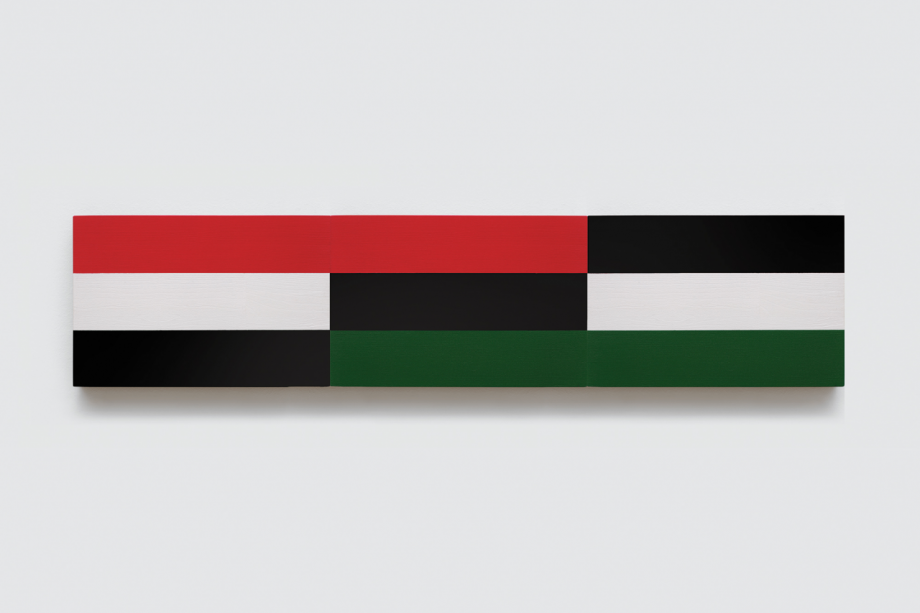
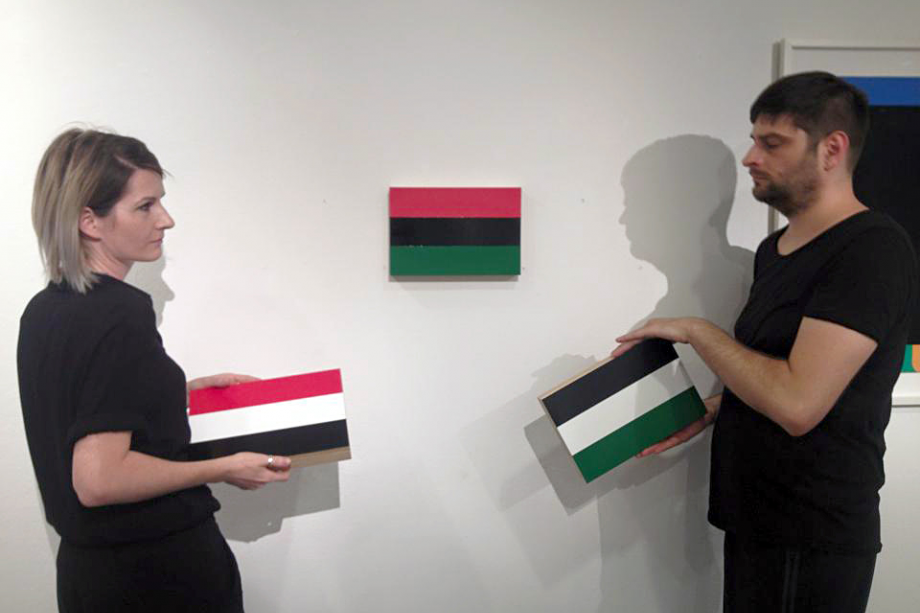
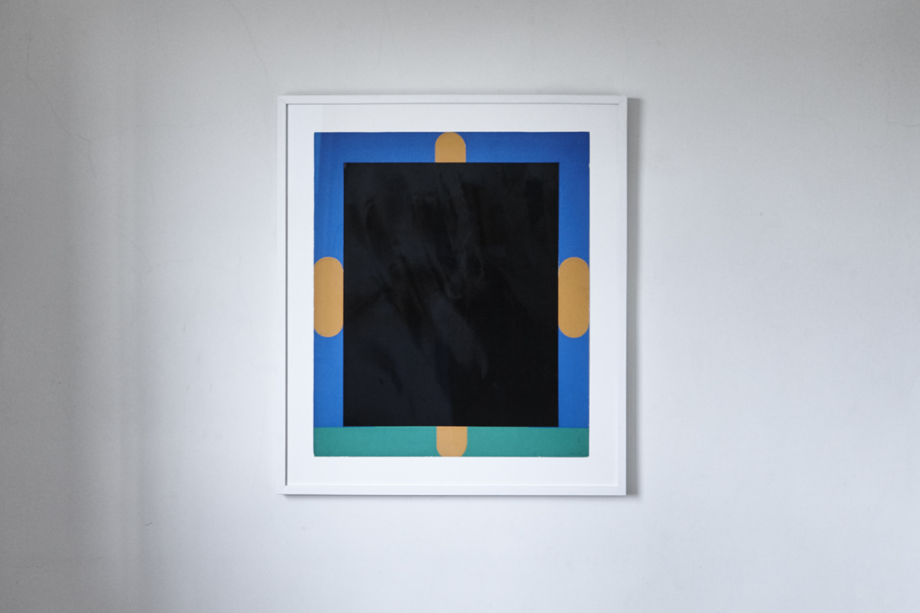

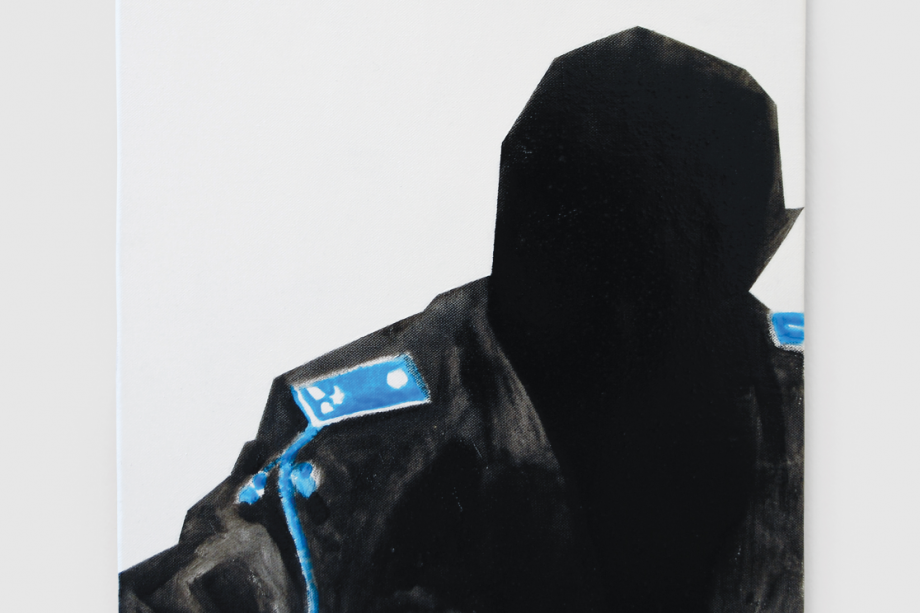
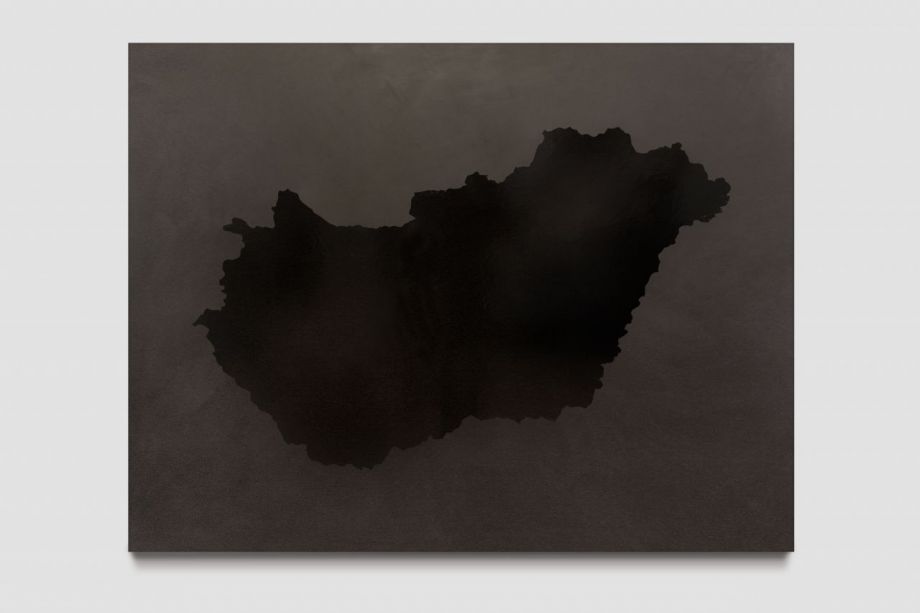

The irony of being censored
The artist duo Lőrinc Borsos creates an alternative national image as a counterpoint to the official national representation in Hungary - a risky business.
Cultural politics in Hungary are heading towards an ever more centralized and controlled system, but as Gergely Nagy writes in his article of PEN/Opp: “Nothing has been forbidden, no one has been jailed.” The artist duo Lőrinc Borsos, however, is one of the rare cases where artists have actually been censored by Hungarian authorities. The incident happened at Collegium Hungaricum in Vienna, where the work See no evil, hear no evil, speak no evil, was removed from the collective exhibition “Real Hungary”, just a few hours prior to the opening.
The work consists of three Hungarian flags in a row, where one of the colored stripes on each has been exchanged with a black stripe of glossy paint. According to the director of the Collegium Hungaricum in Vienna, Mária Molnár, “political work could not be shown in the Hungarian Institute, especially not when it concerned the desecration of national symbols.” The artists themselves however, state that the work was not intended to be political at all:
– With our works, our objective was to offer a critical response to the concept of the exhibition, and not to incite a political scandal. With our selection, to present formally abstract works at a show engaged in Realist traditions, we wanted to reflect upon the problematics of categorization.
An ironic touch to the incident, is the fact that the artists themselves have engaged in the matter of censored art. For an exhibition in 2015, they presented a work called Censored Imre Bak, where an original serigraph by the geometrical abstract artist Imre Bak, was painted over with a black square. The work was a comment on the fact that an abstract painting by Bak was removed from the 1967 annual exhibition of the Studio of Young Artists in Budapest, due to cultural political considerations.
Lőrinc Borsos conists of the two Budapest based artists Lilla Lőrinc (born 1980), and János Borsos (born 1979) who work together as Lőrinc Borsos since 2008. They express their artistic production as the work of one single artist, whose “gender, sexual orientation and intellect are equally characterized by bipolarity” Their starting point of this common work process was to present an alternative national image as a counterpoint to the official national representation in Hungary, and has since worked with issues such as identity, hierarchy and social divide. A motto voiced by the artists can be read as an expression of their firm social engagement: “The artist seeks the peace of mind of those who don’t stand a chance.”
The works presented in this issue of PEN/Opp are mainly from the early period, where national symbols, such as flags and monuments, are tampered or played with. A striking shift in meaning of these national symbols emerge in these works, often with very small means. A more complex work on the subject is the installation Immovable land, where a model of the Hungarian parliament in chamotte (clay) is placed on a solid metal core, and then put on a vibrating table, that starts moving as a visitor approaches. In this work, which also expresses the artists’ interest for biblical myths, “the symbol of the Hungarian state is brought into a paradox of stability, eternity as opposed to instability, fragility.” Renovation of the work is prohibited and the process is only complete “when the last particle of dust falls from the table”
In later years, the duo has turned more and more inwards, “a three year long self-analytical nightmare”, as they express it, resulting in a complex series of self portraits in different techniques. But in the process, questions of censorship and self-censorship has also surfaced. Thus, it is almost like a strike of fate that the duo has now itself been censored in the wake of the current Hungarian cultural politics. But Lőrinc Borsos does not give in to these kind of limitations from above:
– At this point there is no political correctness of self-censorship, they claim.
Read more about Lőrinc Borsos here

